The Hours
 for mature thematic elements, some disturbing images and brief language.
for mature thematic elements, some disturbing images and brief language.
Reviewed by: Jim O'Neill
CONTRIBUTOR
| Moral Rating: | Very Offensive |
| Moviemaking Quality: |
|
| Primary Audience: | Adults Teens |
| Genre: | Romance Drama |
| Length: | 1 hr. 54 min. |
| Year of Release: | 2002 |
| USA Release: |
December 25, 2002 (LA/NYC) December 27, 2003 (limited) January 24, 2003 (wide) DVD: June 24, 2003 |
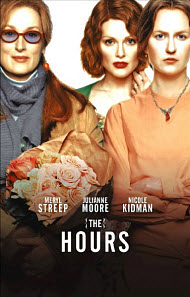

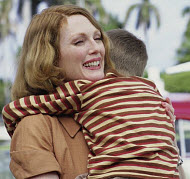


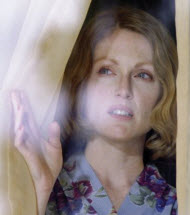
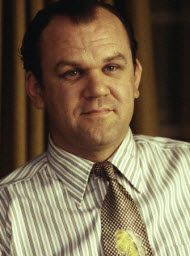
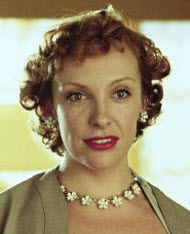
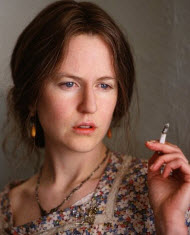
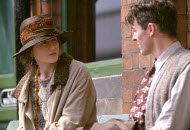
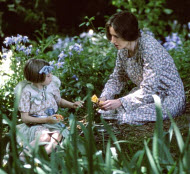
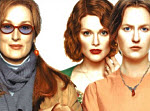
lying in the Bible
Biblical women with admirable character, include: Mrs. Noah, Mary (mother of Jesus), Esther, Deborah, and Milcah, daugher of Zelophehad.
DEPRESSION—Are there biblical examples of depression and how to deal with it? Answer
What should a Christian do if overwhelmed with depression? Answer
Where did cancer come from? Answer
How did bad things come about? Answer
Why does God allow innocent people to suffer? Answer
What about the issue of suffering? Doesn’t this prove that there is no God and that we are on our own? Answer
Does God feel our pain? Answer
What kind of world would you create? Answer
Death in the Bible

What’s wrong with being gay or lesian? Answer
What about gays needs to change? Answer
It may not be what you think.
What about feminism and women’s lib? Answer
SUICIDE—What does the Bible say? Answer
If a Christian commits suicide, will they go to Heaven? Answer

Why is there a disconnect between Hollywood and the rest of America? Answer
Are we living in a moral Stone Age? Answer
| Featuring |
|---|
| Nicole Kidman (Virginia Woolf), Julianne Moore (Laura Brown), Meryl Streep (Clarissa Vaughan), John C. Reilly (Dan Brown), Toni Collette (Kitty), Ed Harris (Richard Brown), Claire Danes (Julia Vaughan), Jeff Daniels (Louis Waters), Allison Janney (Sally Lester), See all » |
| Director |
|
Stephen Daldry |
| Producer |
| Paramount Pictures, Miramax Films, Scott Rudin Productions, See all » |
| Distributor |
“Three different women. Each living a lie.”
Michael Cunningham won a Pullitzer Prize for The Hours, his novel about twentieth century life as seen from the perspective of three women each of whom find themselves caught up in and destabilized by the effects of a rapidly evolving modern age. The film by Stephen Daldry, unfortunately, is a faithful adaptation of Cunningham’s book.
The beginning of the twentieth century is represented by Virginia Woolf (Nicole Kidman) who sweats and suffers (some might say dithers) over her novel, Mrs. Dalloway before she commits suicide. The middle of the century is characterized by a housewife (Julianne Moore) who cares for a son, bakes a cake for her husband’s birthday, and sneaks off to a hotel room to read Mrs. Dalloway. She represents the conservative, unyielding and unfulfilling 1950s. I don’t see much pathos or much sincerity in this sequence. The fifties may have been a buttoned-up period in our cultural history, but it wasn’t nearly as dull as “The Hours” would have us believe. And neither were housewives sentenced or resigned to lives of boredom. While Virginia Woolf novels stayed stubbornly on bookstore shelves, women in the fifties were buying up books by Grace Metalious and James Jones. Those readers were not a dull lot. Unlike Moore’s character, people who lived in the 1950s actually did know how to have fun.
And if someone was prone to melancholy and suicide as Moore’s character is, the last thing she ought to be doing is reading Mrs. Dalloway. Her choice in leisure reading is akin to an alcoholic going to the movies to see “Lost Weekend” or a kleptomaniac going to see “Marnie”.
The end of the century brings us the sorriest of the three, a lesbian (Meryl Streep) who is preparing a party for a former boyfriend who is now dying of AIDS. Notice how each of the three women is preparing something, and none of her plans come to fruition. Streep’s character comes closest, but she seems bound and stifled by her tasks. She devotes a lot of time and effort to her current lover (Allison Janney) and to her former lover (an overwrought Ed Harris), but she doesn’t seem to give of herself to either. Her friend with AIDS needs a lot more than a party.
Streep plays the part the way she usually does. There’s more technique than soul in the performance, her character almost invisible behind heavy sweaters, long coats, bulky scarves and dark-rimmed glasses. If Streep and her character represent the twentieth century come full circle, we’re all in for a lot of trouble.
Virginia Woolf’s legend always had more meat than her novels or her essays. Cunningham’s novel and Daldry’s film prove this point. I don’t believe Mrs. Dalloway is a great novel. Its themes of suicide and sexual ambiguity bored me. Cunningham’s reworking of those themes had the same effect on me. Both have death as their focal point and both use death to weave a theme of self-affirmation not by facing or daring or understanding death, but by submitting to it. This is not only morbid stuff, it’s silly stuff. None of the characters examine their conscience. No one considers sin to be a factor in her unhappiness. No one contemplates looking to Christ as a solution to her problem. Indeed, there is no salvation to be found in the world of Virginia Woolf. Perhaps one of her significant contributions to our time was to prophesy our current day “culture of death.”
I suspect that “The Hours” was brought to the screen not because it had something important to say. Rather, it was made as a star vehicle for the three main actresses. Without an Academy Award, especially one for Ms. Kidman (whose performance is more a credit to the makeup department than to her own talents—aren’t there any actresses with long faces and crooked noses who actually look like Virginia Woolf out there? Wouldn’t it have been more practical to just cast one of them?), the movie will go nowhere with the general public. At this time, it can only be seen in a few theatres. I suspect that this is to ensure that only elites and Academy voters will have the chance to see it, and to fawn over it. And to ensure that Ms. Kidman, and perhaps one of her co-stars as well, will have an Oscar to put on the mantle. And the rest of us will have a reason, although it’s a hollow one, to buy a ticket to a film unworthy of the public’s attention.
See list of Relevant Issues—questions-and-answers.


This film is more or less about three women from three different decades, who are sublimely unhappy with their lives, and who try to cope with that unhappiness through art and creativity. All the while, they seriously consider suicide as an end to their misery, but opt to stay alive to make others around them happy. Some survive this inner struggle, and some don’t.
Some will argue with the film’s humanist worldview, but as far as I can tell, these emotions are real, these situations are real, and they happen every day. “The Hours” only brings those things to the light. Much has been made of the “lesbian” kissing scenes in the film. The viewers who have commented vehemently on these three instances have indeed taken it all out of context. These women so desperately want to make a connection with another human being, that the kisses aren’t what they seem to be on the surface. They are not sexual, by any means. Yes, there are gay and lesbian characters in the film, but there are gay and lesbian people in life, as well.
Every time I see this film, it’s as though I see it through new eyes. I always gain a fresh perspective, and this has much to do with the fact that I am older, and have gained much more life experience than when I first saw the film years ago. Everything about the film bursts with life, from the beautiful cinematography, to the acting, the Philip Glass’ beautiful score.
There is also an unexpected scene of forgiveness that is truly touching. You should come away from this film a little more enlightened than you were before, that is, if you are willing to go there…and it always helps to read the books beforehand to gain a fuller experience. Those who have claimed that the film is about “nothing” are dead wrong. This film works on so many levels. It is nothing short of a miracle.
Moral rating: Offensive / Moviemaking quality: 5
[Average / 2]
[Extremely Offensive / 5]
[Extremely Offensive / 1]
[Extremely Offensive / 1]
[Extremely Offensive / 1]
[Extremely Offensive / 1½]
[Very Offensive / 2]



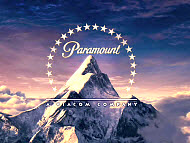
My Ratings: [Average / 5]